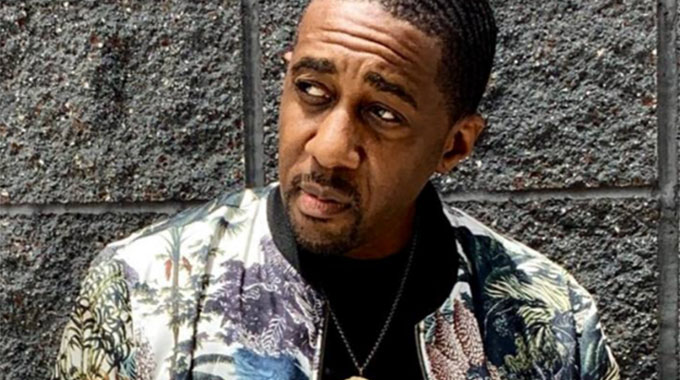Youth blend in Zanu PF elections tonic for posterity

Ranga Mataire
Group Political Editor
The election season is upon us.
It is an exciting time for the electorate and aspiring candidates for both parliamentary and local authority elections.
While other political parties are yet to hold internal elections to select representatives, Zanu PF has already moved a gear up in preparing for its own primary elections set for March 18.
What has become apparent to any observer is a large number of youthful aspiring candidates that have expressed interests in representing the revolutionary Zanu PF party in the exercise of its democratic tradition of holding primary elections.
The fervent interest by a large number of young people to contest the elections under the Zanu PF banner testifies to the revolutionary party’s transformational and reformative agenda, including its ability to assimilate within its ranks all people from different social strata.
As the Zanu PF spokesperson, Cde Chris Mutsvangwa said: “There was an evident sense of purpose springing from the glowing successes of the development agenda of His Excellency President Mnangagwa.”
The new “can-do-spirit”, he said, was energising the electorate.
Indeed, in every province, there is a blend of the young, the old and the tried and tested all wanting to have a go at the elections.
It is, however, the interest from the youth in taking part in mainstream politics that has taken the attention of many.
With the coming of President Mnangagwa as the leader of the New Dispensation, many youths seem to have been galvanised in embracing a new sense of purpose given the various initiatives that have been implemented by the Government to empower the youths.
The Government of President Mnangagwa has taken a deliberate move to put in place programmes that ensure that youths actively participate in all spheres of economic activities in the country.
A good example is in 2022 when Government resolved to reserve mining concessions for youths in eight provinces as part of youth empowerment drive to enable young people to venture into business.
The resolution was adopted by the Zanu PF Government in line with the Constitution that directs that youths are afforded opportunities for employment and other avenues for economic empowerment.
Section 20 of the country’s Constitution states that the “State and its institutions at every level must take reasonable measures, including affirmative action to ensure that youths are afforded opportunities for employment and other avenues for economic empowerment.”
Apart from reserving land for the youths, the Zanu PF Government also approved the registration of four Special Grants to enable the Mining Promotion Corporation to engage entities to negotiate joint venture arrangements with the youths.
And in agriculture, the Zanu-PF Government is rolling out the youth quota system that will see young farmers in the country getting at least 20 percent of all land that is being downsized and reallocated.
This move will capacitate the youths so they can play a significant role in agriculture, a sector that contributes enormously to the revitalisation of the economy.
There are other various initiatives that are being implemented by Government tailor-made for the youths. These and the ruling party’s pro-poor ideological thrust have found favour among the youths who are flocking and stampeding to represent the party in the forthcoming harmonised elections.
The demographic reality demands that the revolutionary party takes steps in acknowledging that young people constitute the bulk of the general membership and as such must remodel its policies to cater for their aspirations.
It must, however, be known to the young crop of the membership that being young is never a licence to denigrate their elders in the party, many of whom sacrificed their lives for the freedom of the majority during the liberation struggle.
Although the heightened interests of the youths in participating in the elections is a cause for celebration for assured regeneration of the revolutionary party, measures must be taken to ensure that the right calibre of candidates are eventually chosen to represent the party.
As such, rigorous vetting and orientation must form the hallmark of the whole election process to curb against pseudo-revolutionaries or infiltrators with scanty or no knowledge of the party’s foundational ethos.
New members must not only be familiar with the party’s constitution, but must also have full appreciation of its ideological thrust and embrace a culture of respect and allegiance to the hierarchical order in the party.
Those aspiring for leadership at whatever level need to have a deeper understanding of the Zanu PF’s ideological principles before they can be declared to contest in any election.
This is necessary to ensure cohesion and discipline.
The absence of a rigorous orientation or induction strategy or programme has in the past led to members failing to entrench themselves in the party’s belief system and, therefore, becoming instruments of manipulation and destabilisation.
One of the things that have sustained former liberation movements like Zanu PF has been the membership’s respect and understanding of foundational ethos born out of socialist orientation with Zimbabwean characteristics.
This is what is often referred to as “gutsaruzhinji.”
To ensure posterity, the ruling Zanu PF must guard against accepting within its ranks people with a record of being contemptuous of the party’s culture and hierarchical order who seek to introduce a new brand of politics that is alien to the tried and tested ways of doing things.
This brand of politics that also borders on venality is a departure from the revolutionary party’s foundational ethos, which the party needs to nip in the bud. It is a positive development that Zanu PF has set up guidelines for the elections.
An electoral college will be constituted by members appearing in the registers of recently established cells/village structures.
Prospective candidates must have been members of the party for more than five years at district level with a clear undisputed record.
Waivers will be considered for civil servants and members living in the diaspora.










Comments